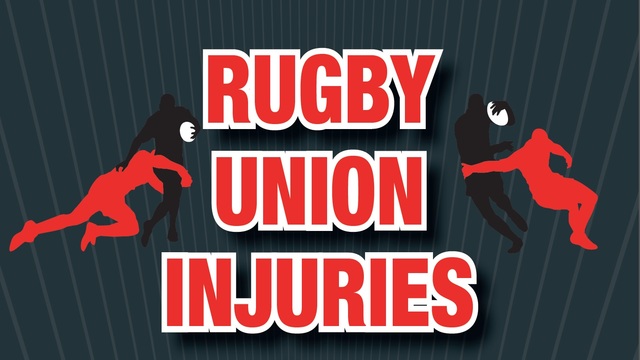Rugby Injuries and Six Nations
Injuries are now a common part of our game, and this year’s Six Nations has been no exception. So as we look forward to the weekend, take a moment to think of those on the side-lines, whose absence could have made all the difference.
Scotland – Sean Lamont – Knee Injury
Against England, the Scottish defence was carved apart all too easily, and Lamont’s rock-steady presence could have made the difference, had it not been for a knee injury. He was sorely missed in the second half when the scots bravery began to waver. He’s getting on a bit now, and Scotland (despite some valiant performances) look like they need some experience to steady the ship.
England – Owen Farrell – Knee Injury
It’s a cliché worth repeating, and never has it been truer; when one door closes, another opens. Farrell was ruled out of England’s 6 Nations squad in January, after sustaining a knee injury. Although devastating for him, this has given George Ford the chance that many have been longing for. Farrell, who plays a more conservative traditional English game, could not contrast more starkly with his replacement, Ford, who has a mercurial streak that gets fans out of their seats, and has been outstanding throughout the tournament.
Ireland – Andrew Trimble – Broken Toe
How Ireland could have used him this past weekend. Wales’ resolute defence held strong against wave after wave of Irish attacks. Payne and Zebo lacked penetration against a physically dominant Welsh side. Trimble’s power and acceleration off the line could have made the line-break that Ireland struggled to create. What could be more significant, in terms of the final standings, is the fateful moment when Sexton limped off in the second half of the England game. After that Ireland lost control of the match, and more importantly gave England a try after some poor positional kicking.
In a tournament that looks likely to come down to points difference, that could be the deciding factor.
Wales – Samson Lee – Achilles Tendon
It’s sort of apt that this young Welsh prop is named Samson, given the weight of expectation on his shoulders following Adam Jones’ retirement. Sadly this young starlet was forced off the field against Ireland with a raptured Achilles tendon after only twenty minutes, and there’s a chance he won’t make it in time for the World Cup. Italy will now be facing a highly inexperienced Welsh front row that has just 18 caps between them. Castrogiovanni has five times as many as that on his own, which may not be enough to give Italy a win, but it could derail a last minute Welsh bid for the title.
Italy – Michele Campagnaro – Knee injury
Italy’s wonder kid barely got going before he took a bow out of the tournament. After bursting onto the scene last year, demonstrating blistering pace, and a vicious side step against Wales, many had high hopes that this might be the spark to ignite a formerly damp Italian backline. Alas it wasn’t to be the case, and his knee injury sent Italy back to their more traditional forward orientated game.
France – Remi Lamerat – Hamstring
It was sad to see Lemerat limp off with a strained hamstring against Wales only fifteen minutes in, but it’s encouraging to see that he is on Phillipe Saint Andre’s radar. He will, however, face an uphill battle to break into the French centres with Basteraud, Fofana and Mermoz as his competition. Despite the strained hamstring, Lamerat offers something slightly different to his physical counterparts, and a quick look at his performance against Leinster in last year’s Heineken Cup should be enough to make you sit up and take notice.
Despite all the injuries and regret surrounding those that won’t be taking the field this weekend it is worth remembering that we are, in fact, set for a belting weekend of rugby. England sit in pole position, but only on points difference ahead of Ireland. While I suspect that Ireland will win in Murrayfield, I don’t think it will be by any more than twenty points. England hold the advantage in that they are playing a notoriously poor travelling French side at home and they have a 4 point head start on the Irish. While Wales have a theoretical chance of victory, they would need to put 25 points on Italy on top of the score that England or Ireland put past their opponents. It’s a case of calculators and crucifixes out as each side prays for victory this weekend…


